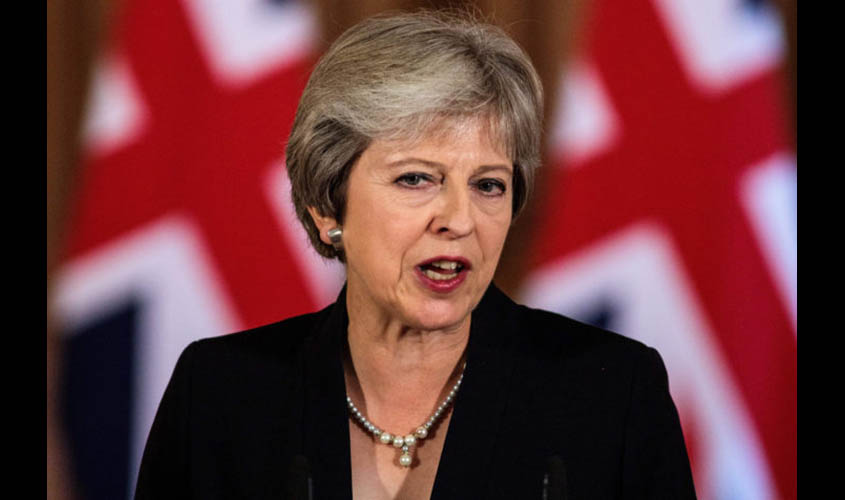Until the 1998 Belfast Agreement and the Good Friday Agreement were signed, the border separating the two was as hard as they came.
LONDON: There are two issues and two sides to the Backstop.
The issues are: 1) The single market/customs union/EU regulations and tariffs versus free trade/zero tariffs. 2) The recent history of a militarised border.
The two sides are Northern Ireland (NI) and the Republic of Ireland (RoI), i.e. Anglo-Irish relations.
The sides and the issues are related.
Until the 1998 Belfast Agreement and the Good Friday Agreement were signed and peace was restored between Northern Ireland and the Republic of Ireland, the border separating the two was as hard as they came.
During the 1960s, a political division began over the constitutional status of Northern Ireland; for nearly 40 years, a violent ethno-nationalist conflict between the Nationalists (for one Ireland, a nation state), Republicans (mostly Catholics) against Unionists (political union with UK) and Loyalists (mainly protestant monarchists opposing a United Ireland) continued. In 1969, British Army arrived to carry out a peacekeeping role as paramilitaries emerged on both sides. This political identity conflict, known as The Troubles, claimed 3,500 lives. Since 1998, the heavily militarised border has been dismantled, the border is invisible, folks travel back and forth freely, to keep the seamless status quo is what the RoI, NI, UK and EU desire. The “invisibility” of the border is integral to the peace agreements of 1998.
Since both UK and RoI are members of the EU single market/customs union, goods and services have been traded without restrictions.
There has been a lot of scaremongering that a No Deal would introduce a hard border between RoI and NI, as UK would then be trading on WTO terms. As there has been no definitive agreement on exactly how UK will trade with RoI (and de facto with the EU), there is a growing fear that a frictionless land border will still not be settled after the implementation period, December 2020. Theresa May introduced this Backstop idea to prolong the implementation period as an insurance policy against a hard border. But the Backstop backfired, the precautionary insurance in the event of a No Deal came to dominate the negotiations because Leavers/Brexiteers are critical that the Backstop idea keeps UK in a single market and customs union indefinitely, which, by the way, might suit RoI as they want to remain in EU.
The threat of a hard border has opened up psychological scars and budding political enmities in communities; both sides of the invisible border still want to keep their identity (Irish nationalist or British unionist/loyalist), without the issue of a United Ireland creeping into the conversation. This week a bomb went off in NI’s Londonderry Courthouse; a group called the IRA claimed responsibility but denied it was anything to do with Brexit or borders. Their statement read: “We caution those who collaborate with the British that they are to desist immediately as no more warnings will be given.”
Sir Graham Brady’s pragmatic amendment that allows May to return to Brussels to demand a less prolonged and more specific solution to an open border, other than the Backstop, was supported by the European Research Group MPs and the Democratic Unionist Party in Parliament. This is significant as May now has more or less united the Conservative Party and has the majority in the House of Commons. This gives her a genuine mandate to negotiate with Brussels. The other amendments, to extend Article 50, cancel the No Deal option and hold a second referendum were all rejected.

